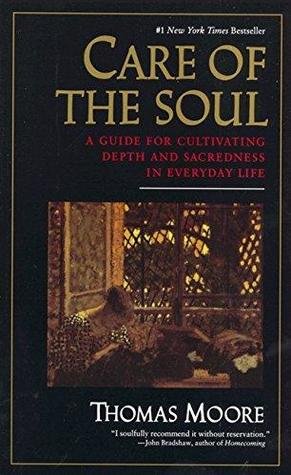Words from Saint Stephen's: CARE
The word care appears in the title of one of my favorite books, Thomas Moore’s Care of the Soul,which suggests the soul needs care and there are ways to seek/offer that care, with the clear understanding that it is something we must attend to. It is not a small matter. The soul is at the heart of caring.
Care of the Soul by Thomas Moore
And then there is the physical care we offer (or don’t offer) one another. Covid-19 has given us a much greater understanding of this meaning of care. We think of the front-line health care professionals in hospitals; of families coming together to care for members who have fallen ill and need home care; of different kinds of communities—churches, nursing care facilities, schools, in which different kinds and levels of care are offered. And we think about caring for the homeless and the terrible and frightening consequences of not taking care of those who cannot afford to care for themselves, for example the victims of the recent devastating apartment fires in Philadelphia and the Bronx.
And what about caring for someone, as in “I care for you.” What do we mean when we say a person is a caring person? And how do we recognize such a person? For example, do some kinds of work assume and expect the person doing the work, e.g. teacher, civil servant, hospital worker, clergy person, social worker, and do we expect these persons to be caring and to offer palpable kinds of care?
And what does it mean when we say we really care about voting rights and just laws?
When I was in graduate school, I read an essay entitled “A Life Free from Care.” I had no difficulty understanding what the writer meant: there were many difficulties in his life, some more serious than others, but together they gave him plenty to worry about. His “cares” made him anxious. Here is an instance when “care(s)” can be a burden. This is no small matter.
Aren’t these all different meanings of the same word? If so, what might these meanings have in common besides the word care itself.
Amanda Gorman at the Biden inauguration, photo by Rob Carr | Getty.
A few moments ago, I read an opinion essay by Amanda Gorman (New York Times, January 20, 2022) the young poet who read one of her poems at the January 20, 2021 Inauguration of President Biden. It’s a lovely opinion essay with lots of teeth, the best kind, really. And it is all about different forms of caring. But the reader won’t find the word care in Amanda Gorman’s essay! After all, Amanda Gorman is a poet and a poet is a word artist. So, her essay makes us step back and think about individual words, how these words are used, and how they are intended to be used, and what these words might mean. And could Amanda Gorman’s preference not to use the word care in her essay be intended to have us imagine what “care” means?
Perhaps we can take from Amanda Gorman’s essay that practicing care is to be brave. Imagine that.
And think about where God is in all this caring. Louisa May Alcott has a response: “[God’s] love and care never tire or change…and [may] become the source of lifelong peace, happiness and strength.” And to bring God into the picture brings us back to the care of the soul.
— Father Peter

